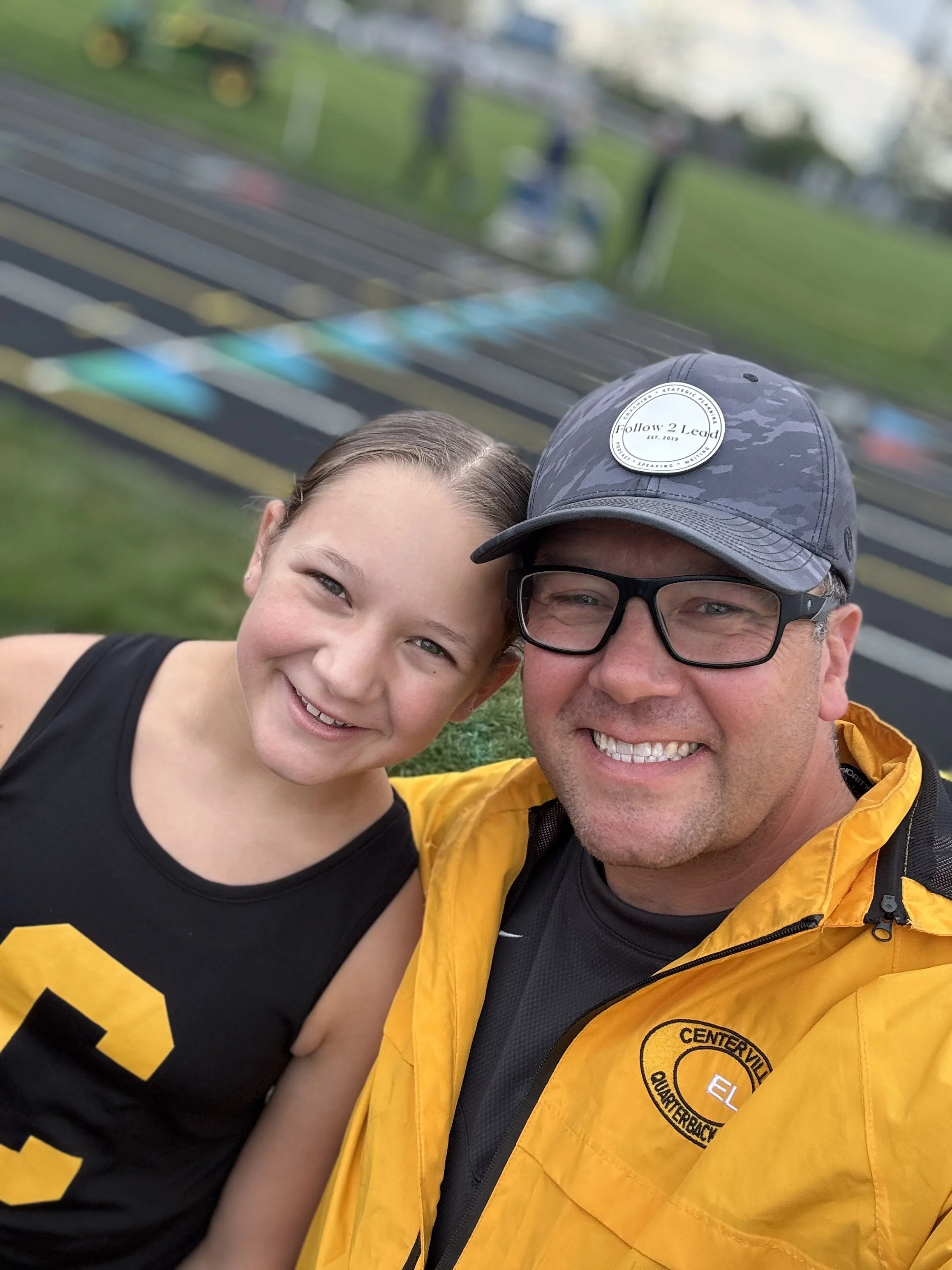Fathering Through My Own Wounds: Lessons I’ve Learned as a GirlDad (Guest Blog by Tony Miltenberger)
Michelle Watson
Being a dad is full of surprises, but being a GirlDad has taught me lessons I never expected.
With Shiloh, my youngest who is now 13, every day feels alive with energy, questions, and challenges. I want to guide her, make things easier, and help her avoid frustration. But one of the hardest lessons I’ve learned, and one I explore in Wisdom in the Wound, is that sometimes the most important thing I can do is step back, especially when my own wounds get in the way.
Shiloh recently decided to try running track. If you’ve never been to a track meet, you’ll quickly learn it’s a lot of waiting for a very brief reward. For her, it was frustrating, she was slower than the other kids, and she felt it deeply. She stomped, complained, and struggled with impatience. And I understood completely, she got her speed from me.
Here’s where it got tricky.
My instinct was to coach her, push her, and help her fix what I saw as “correctable.” But it wasn’t just about track. My wound, this deep desire to be seen, to be right, to feel like I was helping, was bubbling up. I wanted to be acknowledged for being a good dad, for knowing what she needed.
And every complaint from Shiloh, every moment of frustration, felt like a reflection on me. Her struggle bumped up against my own need for validation, and I could feel my patience shrinking.
Shiloh didn’t want to put in the work I knew would help. She wanted results without the effort, and my first reaction was to fix it for her, to make her see things my way. But stepping in that way would have been about me, not her. I realized that my need to be seen and “do it right” was actually blocking the most important thing I could offer: my presence.
So, I paused. I had to let her experience the frustration herself. My role wasn’t to control the outcome or prove I knew better; it was to cheer her on, listen, and quietly hold space for her to learn. To trust that she could handle the challenge, even if it was slow, messy, and imperfect.
Being a GirlDad has taught me that love isn’t measured by how much I can control the outcome. It’s measured by how well I can show up, recognize my own impulses, and let her grow through the challenge.
My wounds can cloud my judgment, but when I notice them and step back, they can guide me toward wisdom, presence, and patience.
Watching Shiloh navigate track, slow, frustrated, but trying, reminds me that my job isn’t to make life easy for her. It’s to make sure she knows she’s capable, supported, and loved, even when she doesn’t do things the way I would.
Fathering isn’t about perfection. It’s about showing up, being honest with yourself, and choosing presence over control.
Every day with Shiloh is a lesson in humility, patience, and trust. My wound to be seen will always be there, but when I steward it well, it allows me to be the dad she actually needs. I’m grateful I get to walk alongside her, not as someone who fixes everything, but as someone who trusts her to do the work herself and loves her fiercely while she does it.
Tony Miltenberger is the founder of Follow2Lead Coaching. He is a veteran, podcast host, executive coach, author, and the associate pastor of disciple making at Centerville Grace Church. Throughout the years, Tony has traveled the globe, taking deployments in Kuwait, El Salvador, and numerous marriage retreats throughout the US. He has consulted with churches in the deep south and multi-million dollar organizations in the Midwest. His proudest accomplishment is being the father to three amazing kids and being married to his high school sweetheart (Karen) for over 20 years.
If you want to hear more from Tony, you’ll love his new book, Wisdom in the Wound: How God Uses Your Past to Shape Who You’re Becoming.


